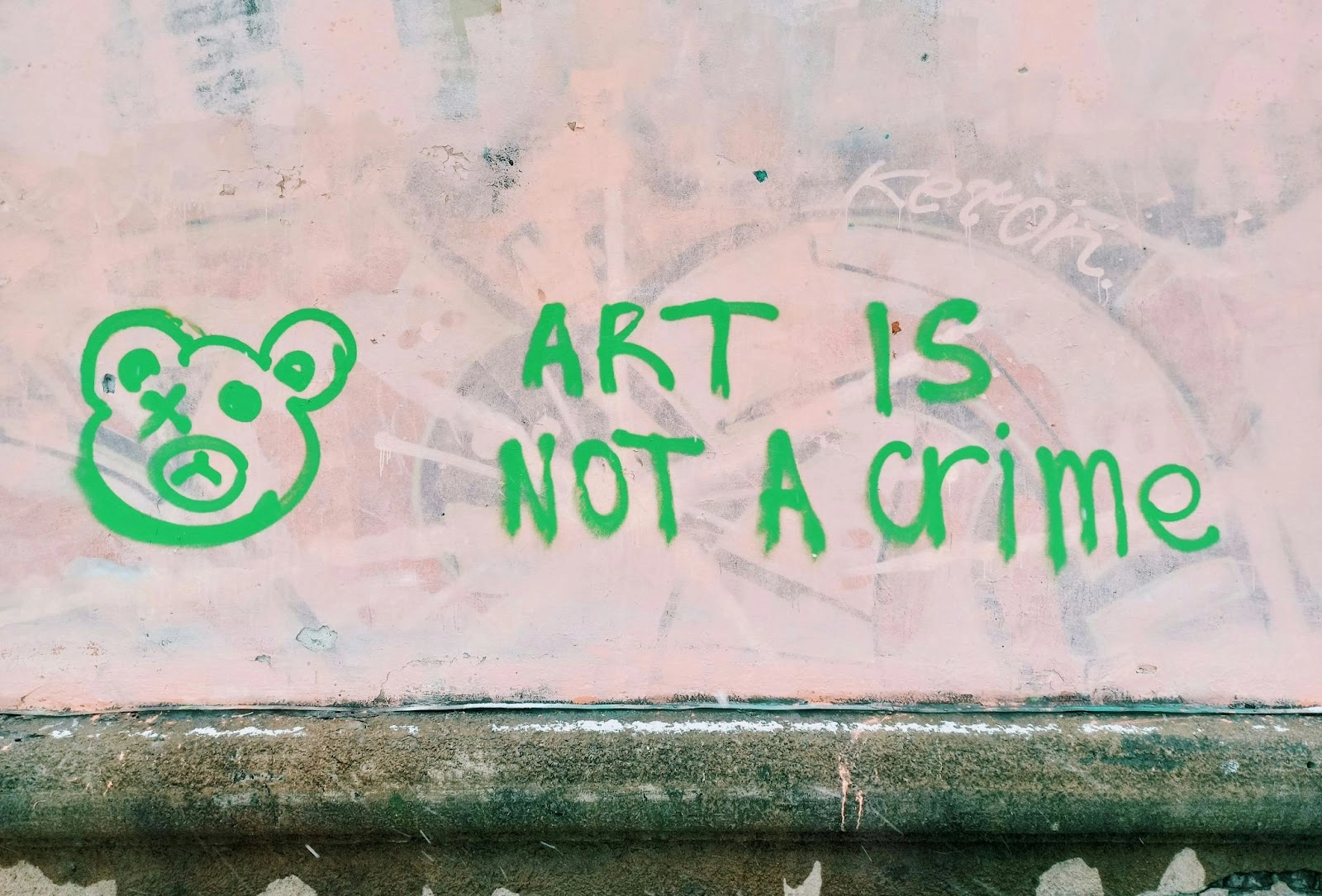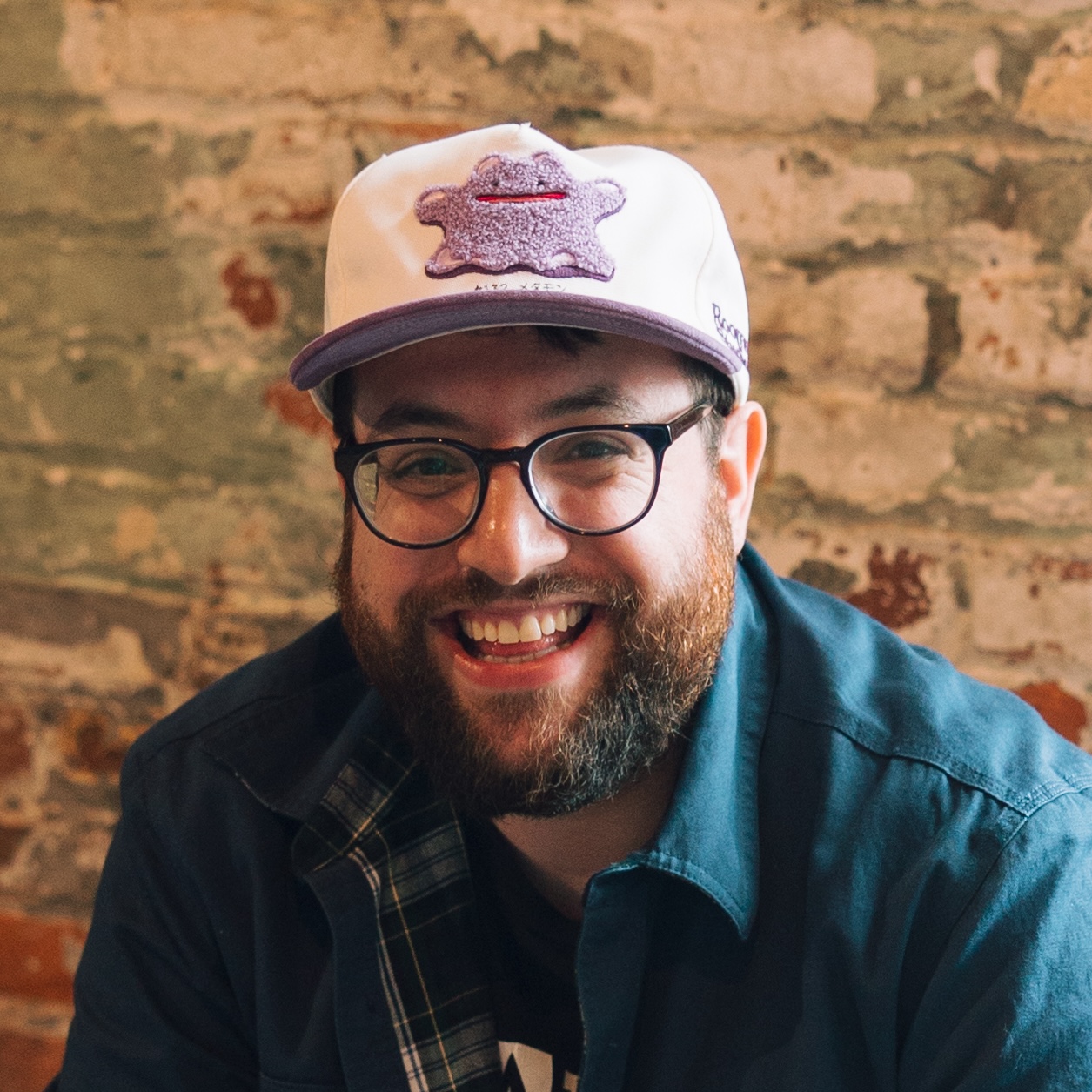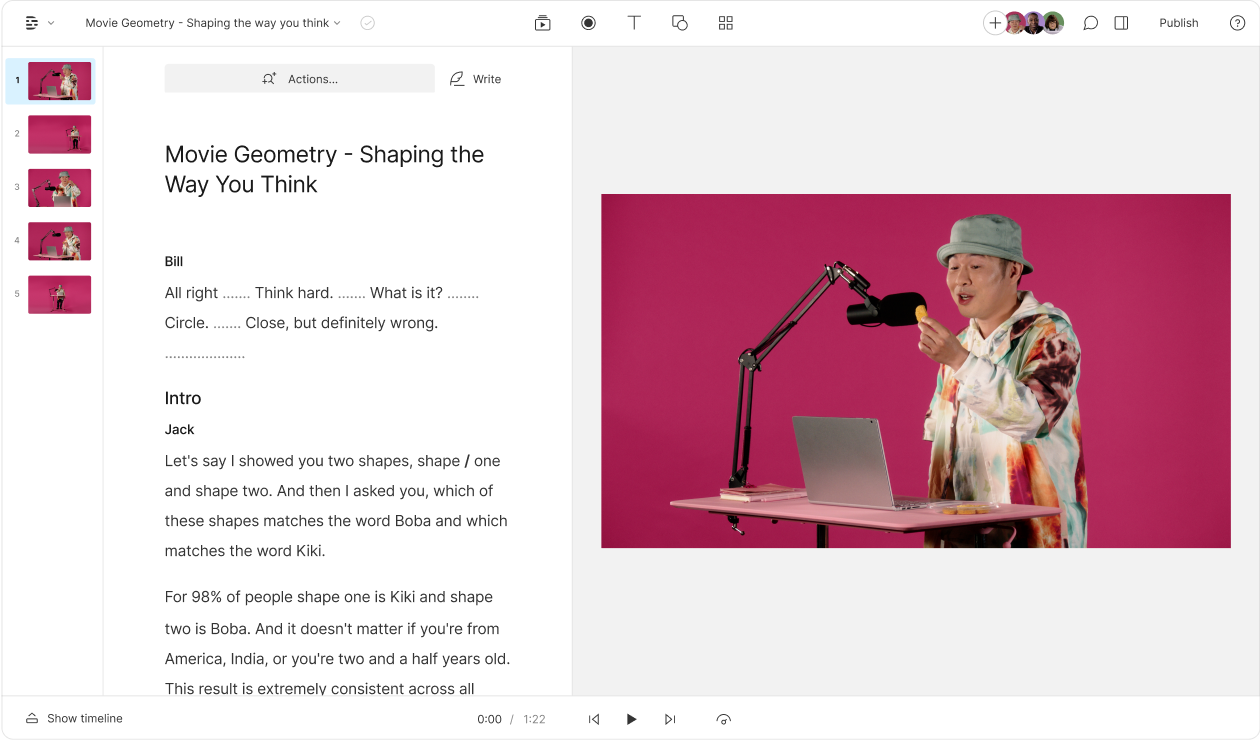What type of content do you primarily create?




Every week, thousands of new podcasts launch with the same basic formula: casual banter, celebrity guests, and a punny title. Most disappear within months because they sound exactly like everything else.
The podcasts that break through aren't just lucky—they're strategic. They make deliberate creative choices instead of following the default playbook everyone else uses.
If you want to create something people actually seek out and remember, you need to think like a creative strategist, not just someone with opinions and a microphone. And this is just as true for someone with 100 episodes under their belt as it is for a total beginner.
It’s never too late for a strategy
Just because you started your podcast one way doesn’t mean you can’t head in another direction. You (and your collaborators) can decide to refine, rework, or reimagine your podcast at any time—and you’ll probably feel better for it.
It just takes a little extra communication with your audience so they know what’s happening. Make sure to remind everyone—you, your co-hosts, and your listeners—that this is an exciting opportunity to change things up. If you’re taking a break to do some planning, don’t apologize; instead, say something like, “Hey, we’re taking the next few weeks to figure out our show. When we come back, we have something really exciting to share with you!”
Research your creative territory
Take a beat to listen to other shows in your genre. After all, loving an artistic medium is a necessary prerequisite to making something in that medium. Authors always tell aspiring writers to read. Chefs advise up-and-coming cooks to eat as many different dishes as they can. So aspiring audio makers should listen to a lot of audio, especially in their genre. How do you know what makes a good piece of, say, true crime if you’ve never listened to it?
Thoughtful listening and good notes will help you make informed choices about your work. Think about these questions as you’re listening to an episode or two:
- How do the hosts describe the podcast, either explicitly or implicitly? Do you agree, or would you describe it differently if you were recommending it to a friend?
- How long is each episode? Does it vary between episodes, or has it changed over the lifespan of the show?
- What moments jump out to you and grab your attention? When did you find that you needed to hit the rewind button because your mind wandered?
- Do you like the hosts? Why or why not? What do they do to make you like or not like them? Are they aware of it?
- If you ran into the hosts at a party, what would you ask them about how they make the show?
These questions will help you think about what you want to do with your podcast, and most importantly, why. Making a good piece of art in 2025 is all about intentionality; doing something for a reason is the exact opposite of the AI slop that’s filling the internet.

From there, you can start to analyze peers and figure out what you can emulate and what you can stay away from. We’re focusing on shows in your genre, but if you have a favorite show (or favorite show to hate) outside of that genre, include those, too.
Ask yourself: What shows are already in this space? What do I like and dislike about them? What do I add? Is my show differentiated enough?
These prompts can get you started:
- Show:
- Episodes:
- One thing I like about the show is:
- They achieve this by:
- One thing I don’t like about this show:
- They could fix this by:
Make format decisions that matter
Guests or no guests?
Most podcasters default to interviewing guests because it seems easier than generating original content. But every format choice shapes your show's identity and workflow. For an interview show, every single episode requires coordinating and scheduling with someone who is fitting this into their schedule, who might have a bad tech setup, and will almost certainly need to be cajoled into sharing it on social media.
If you do have guests, be intentional about them. Why are they there? How does having a new guest every episode enhance the show? What could an episode without a guest look like? If your show doesn’t have guests, how could you bring them on? How do you foreground to the audience that a guest episode feels different?
Cohost or no cohost?
Here’s my big recommendation: at least get one cohost to do this with! People are attracted to podcasts because they love hearing two people with chemistry talk to each other. Why keep yourself from doing that?
However, cohost dynamics deserve as much thought as your guest strategy. Two people with genuine chemistry create the kind of natural conversation that keeps listeners engaged, but most of the time, chemistry isn't automatic—it's cultivated. Consider how your personalities complement each other: does one person ask better questions while the other tells better stories? Do you disagree in interesting ways, or do you just reinforce each other's opinions? The best cohost relationships have clear but flexible roles that play to each person's strengths.
How long should your episodes be?
Some podcasters think longer episodes show that the podcast is more valuable, while others figure no one will listen if they go beyond 30 minutes. Who’s right? It depends. The best thing to do is let your format dictate the length. Interview shows might need 45–60 minutes to go deep, while news roundups work better at 20 minutes. More importantly, stay consistent—listeners plan their time around your show's rhythm. No matter how long you go, include chapters or timestamps in your show notes so people know what they're committing to.
Should you have recurring segments, or treat each episode differently?
Recurring segments can add a sense of familiarity, but only if they’re good. Really think about whether that weekly “rapid-fire questions” segment actually serves your audience or just fills time. The strongest recurring elements either provide useful information (like a weekly news roundup) or reveal character (like a host's personal recommendations). If you can't explain why a recurring segment makes your show better, cut it.

Your title is your most important creative decision
Your podcast title does more than identify your show—it’s the first signal to potential listeners about whether you’ve thought strategically about what you’re creating.
On that note, please stop putting puns in your title. It seems to be incredibly important to a wide swath of podcasters that the audience knows that they are clever and smart, and express it by making a pun in the title. But that pun almost always ruins the first piece of marketing that folks hear about the show. Instead of coming up with the best pun, here are some tenets to keep in mind:
- It should describe the show: The title should be informational! If people do not understand the premise of the show, you’re cooked. Extra points if you can convey tone at the same time! A good trick for this is to ask a question or write a pithy statement: Why Won’t You Date Me? You’re Wrong About… This Guy Sucked!
- It should be easy to spell and hear: You’re going to be saying this name out loud for the rest of the show’s existence, so don’t make it too complicated. Avoid homophones, avoid pun-specific name conventions, and avoid the words “pod” and “cast.”
- It should be unique and available: Just search for your name ideas! Does another show exist with the same name? Does this name belong to something that isn’t a podcast but will dominate your Google results? And do the social media accounts you’ll eventually use even exist? Use NameChk.com to double-check the availability across tons of different social media sites.
Intentional choices add up
None of these decisions exist in isolation. When you research your genre, choose your format strategically, and craft a descriptive title, you're building a show that feels cohesive and purposeful. Listeners can sense when creators have made thoughtful choices versus when they've just followed a template.
No matter when you’re doing this, whether in the weeks before launch or 100 episodes into your run, making intentional choices about your work will only serve you. If you know your show inside and out, then you can clearly and concisely explain it to your audience and watch your fans grow.
The podcasting landscape is crowded, but it's mostly crowded with shows that sound the same. Make different choices, and you'll stand out.























%201.svg)





